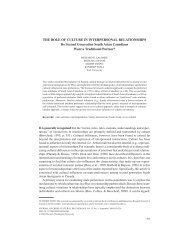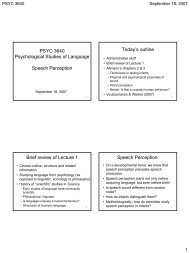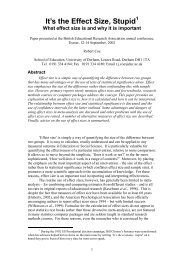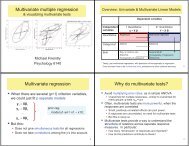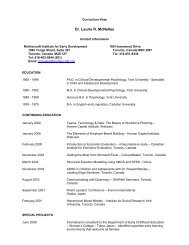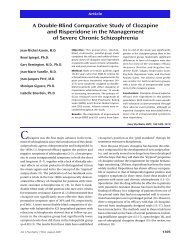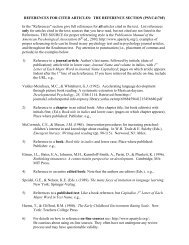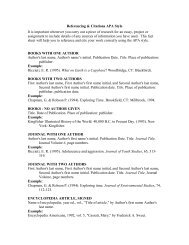The Drama of the Gifted Child (The Search for the True Self)
The Drama of the Gifted Child (The Search for the True Self)
The Drama of the Gifted Child (The Search for the True Self)
You also want an ePaper? Increase the reach of your titles
YUMPU automatically turns print PDFs into web optimized ePapers that Google loves.
3. Continuous per<strong>for</strong>mance <strong>of</strong> outstanding achievements<br />
may sometimes enable an individual to maintain <strong>the</strong><br />
illusion <strong>of</strong> constant attention and availability <strong>of</strong> his selfobject<br />
(whose absence, in his early childhood, he must<br />
now deny just as much as his own emotional reactions).<br />
Such a person is usually able to ward <strong>of</strong>f threatening<br />
depression with increased displays <strong>of</strong> brilliance, <strong>the</strong>reby<br />
deceiving both himself and those around him. However, he<br />
quite <strong>of</strong>ten chooses a marriage partner who ei<strong>the</strong>r already<br />
has strong depressive traits or at least, within <strong>the</strong>ir marriage,<br />
unconsciously takes over and enacts <strong>the</strong> depressive components<br />
<strong>of</strong> <strong>the</strong> grandiose partner. This means that <strong>the</strong> depression<br />
is outside. <strong>The</strong> grandiose one can look after his<br />
"poor" partner, protect him like a child, feel himself to be<br />
strong and indispensable, and thus gain ano<strong>the</strong>r supporting<br />
pillar <strong>for</strong> <strong>the</strong> building <strong>of</strong> his own personality, which actually<br />
has no secure foundations and is dependent on <strong>the</strong> supporting<br />
pillars <strong>of</strong> success, achievement, "strength," and,<br />
above all, <strong>of</strong> denying <strong>the</strong> emotional world <strong>of</strong> his childhood.<br />
4. Finally, depression can be experienced as a constant<br />
and overt dejection that appears to be unrelated to grandiosity.<br />
However, <strong>the</strong> repressed or split-<strong>of</strong>f fantasies <strong>of</strong><br />
grandiosity <strong>of</strong> <strong>the</strong> depressive are easily discovered, <strong>for</strong><br />
example, in his moral masochism. He has especially severe<br />
standards that apply only to himself. In o<strong>the</strong>r people he acmo<strong>the</strong>r<br />
transferring her feelings from him onto me, and my fa<strong>the</strong>r, also,<br />
remaining as reserved as ever), I resolved that one day I would show<br />
<strong>the</strong>m. Now this day has come and gone. No one remembers this day<br />
but me, who am its only remaining witness." This is in marked contrast<br />
to <strong>the</strong> statement by Samuel Beckett: "One could say that I had a happy<br />
childhood, although I showed little talent <strong>for</strong> being happy. My parents did<br />
all that can be done to make a child happy, but I <strong>of</strong>ten felt very lonely."<br />
Here <strong>the</strong> childhood drama has been fully introjected, and idealization <strong>of</strong><br />
<strong>the</strong> parents was maintained with <strong>the</strong> help <strong>of</strong> denial, yet <strong>the</strong> boundless<br />
isolation <strong>of</strong> his childhood found expression in Beckett's plays. (For both<br />
quotations see H. Mueller-Braunschweig, 1974.)<br />
44



